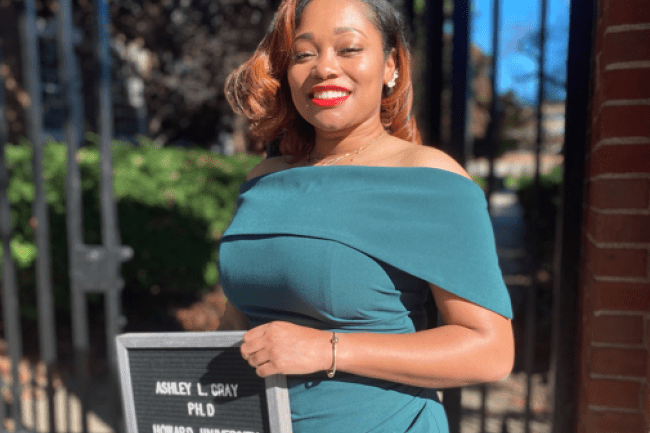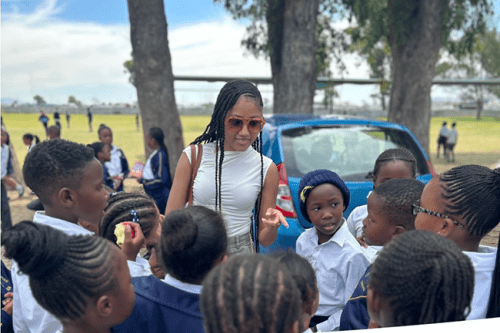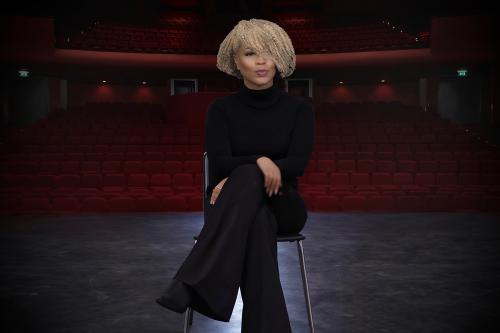Ashley Gray, PhD, the first doctorate of Howard’s new education program, talks about many firsts – for Black women and for higher education.
Ashley Gray, PhD, became the first person to defend her dissertation in the Higher Education Leadership and Policy Studies doctoral program at Howard. With several years of experience already working in higher education, Dr. Gray focused her research on Black women in the U.S. college presidency. Fresh from her defense, she reflects on what she’s accomplished and what’s ahead.
So, how do you feel?
It’s kind of surreal. I have to remind myself that I’m done. I’m still getting used to the title and the responsibility that comes with it.
Your thesis is entitled, “I’ve Got a Testimony!: Black Women College Presidents' Ascension Barriers Stories.” What are some of the key points?
There’s the myth that Black women are not ready for leadership. My research dispels this. I had the privilege of sharing the stories of six very accomplished women who were long ready for leadership before they were given the opportunity.
Additionally, Black women have to show we can do the work before we can get the job. While men are often hired on potential, Black women get hired on the work we’ve already done and oftentimes how that work serves others. This means we (Black women) get the opportunities at very different times and without the same support structures as our peers.
Only five percent of college presidents identify as “women of color,” so there is little literature on the personal and professional experiences of Black women college presidents. This makes for a lonely position at the top for some Black women because there are so few. Simply stated, my research reminds us that much is to be done to recruit, support and retain Black women in leadership.
What was it like to be pioneering this degree?
The most amazing challenge ever. It was challenging for many reasons, from balancing working full-time to expectations from everyone and myself. And there were moments when stopping felt like a reasonable decision, but I pressed through because pursuing was always bigger than my own benefit. I also knew I stood on the shoulders of giants like Frankie Muse Freeman and Lucy Diggs Slowe – dynamic Howard women. And my work is not done.
What are your plans going forward?
I just want to do great work that amplifies the voices of Black women. I don’t know what position that will lead me to just yet. Perhaps one day, the college presidency.
Each of our students contributes to Black history in their own way. What’s your contribution?
My research is a love letter to Black women. It reminds us that we are powerful and prepared to lead.





